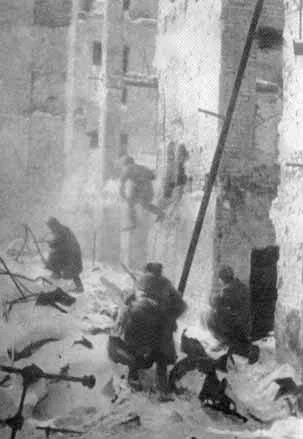My 2016 Reading List
I'm almost 2 years late with this post, but better late than never, right? What follows is my 2016 reading list--some great stuff here.
My 2016 Reading Goal
I set a goal to read 50 books in 2016. But, just as in 2013, 2014, and 2015, I fell short: I read 32 books in 2016.
My Rules
I only count books I read all the way through, cover to cover. I read lots of journals and periodicals and online resources, and in my weekly sermon prep read parts of different books and commentaries, but for my reading goal, none of those count. Why not? I find that the concentration and focus required to read a book all the way through is different (and more valuable) than reading a magazine article or blog post or even part of a book, for example. (Also, reading blog posts and articles isn't life-giving to me the way reading a book is.)A book that I keep thinking about months afterward, a book that adds enduring value to my life, that's a book I'll define as good. Since I'm writing this post in 2018, books I rate well below are books that really stuck with me.I use a 5 star system in my ratings to signify the following:★★★★★ life-changing and unforgettable★★★★ excellent★★★ worth readingBooks getting less than 3 stars aren't on my Best list, which doesn't mean they were necessarily bad--just not books that I'd excitedly recommend to you.★★ read other things first★ not recommended
The Best Books I Read in 2016 (in chronological order)
The Rage Against God: How Atheism Led Me to Faith, by Peter Hitchens
Peter Hitchens has become one of my favorite writers, and I try to read everything he publishes. He writes a column for the "The Mail on Sunday" newspaper, and blogs regularly at that site. (His blog is particularly entertaining and informative.) Mr. Hitchens is the brother of the late Christopher Hitchens, a man well-known for his strident atheism. Peter Hitchens, in contrast, had an adult conversion to conservative Anglicanism, and this book is partly a memoir of that journey.Most of the work of Mr. Hitchens has an elegiac quality, a mournful look at the way the world used to be and will never be again. He is too honest and too intelligent to believe that everything about the world of his boyhood is better than the modern world, but also too honest and intelligent to go along with the unthinking modern worship of Progress.★★★★ The Rage Against God
All the Light We Cannot See, by Anthony Doerr
 What I remember most about this lovely novel about a blind French girl during the Second World War is the appreciation the author has for the thingness of things--old-fashioned keys, the oiled tumblers of a lock, the feel of braille on a page, worn carpet on rickety steps. Just as Marie-Laure comes to know the world through senses other than sight, so do we, the readers, experience the reality of her world.I loved this novel all the way up until the final few pages, which I felt were a betrayal of the hundreds of pages that had come before. Still, the best novels create a world that you live within while you're reading, and this one does it.★★★★ All the Light We Cannot See
What I remember most about this lovely novel about a blind French girl during the Second World War is the appreciation the author has for the thingness of things--old-fashioned keys, the oiled tumblers of a lock, the feel of braille on a page, worn carpet on rickety steps. Just as Marie-Laure comes to know the world through senses other than sight, so do we, the readers, experience the reality of her world.I loved this novel all the way up until the final few pages, which I felt were a betrayal of the hundreds of pages that had come before. Still, the best novels create a world that you live within while you're reading, and this one does it.★★★★ All the Light We Cannot See
An Officer and a Spy, by Robert Harris
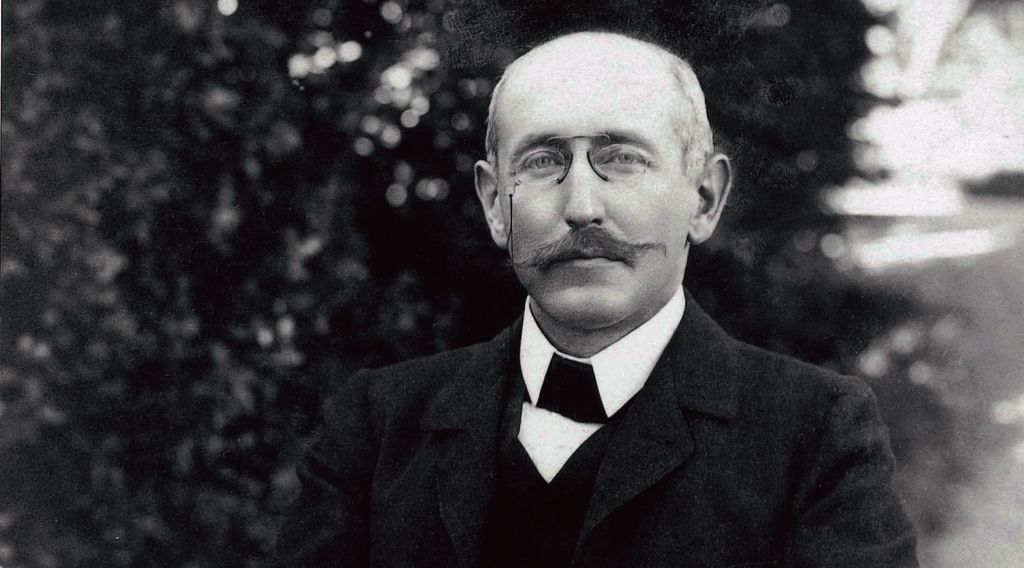 I'd heard about L'Affaire Dreyfus since high school, and I could have answered a trivia question that asked about Emile Zola and J'Accuse, but beyond that I didn't know much of anything about it, other than it involved the French army and nasty anti-Semitism. On a recommendation from Peter Hitchens (see above), I decided to try Robert Harris's historical novel about the Dreyfus Affaire, and I've been thinking about it ever since I read it.The most remarkable thing about this remarkable story is that virtually all of the major and minor characters in the novel were actual historical people. The story is both thrilling, sickening, and fascinating. And, to look back with hindsight and know that within 20 years of the original event France's army would be decimated in the Great War gives the entire story a foreboding quality.(I listened to the audio version of this novel, read by David Rintoul. He is an EXCELLENT reader, and I cannot recommend the audiobook highly enough.)★★★★ An Officer and a Spy
I'd heard about L'Affaire Dreyfus since high school, and I could have answered a trivia question that asked about Emile Zola and J'Accuse, but beyond that I didn't know much of anything about it, other than it involved the French army and nasty anti-Semitism. On a recommendation from Peter Hitchens (see above), I decided to try Robert Harris's historical novel about the Dreyfus Affaire, and I've been thinking about it ever since I read it.The most remarkable thing about this remarkable story is that virtually all of the major and minor characters in the novel were actual historical people. The story is both thrilling, sickening, and fascinating. And, to look back with hindsight and know that within 20 years of the original event France's army would be decimated in the Great War gives the entire story a foreboding quality.(I listened to the audio version of this novel, read by David Rintoul. He is an EXCELLENT reader, and I cannot recommend the audiobook highly enough.)★★★★ An Officer and a Spy
Deep Work: Rules for Focused Success in a Distracted World, by Cal Newport
 Tim Ferriss has this great question he asks the guests on his podcast: "What is the one book you've most gifted--given to other people--in the last year?" For me, one of the books (the other being Rocket Fuel, see below) I've most gifted in the past couple of years is Deep Work. I wrote in greater detail about this book in May 2016, so here I'll just say that though I'm constantly surprised at how few people I know seem willing to do anything about the problems of distraction in our wireless world, maybe that unwillingness will give those of us who are trying to learn how to focus a competitive advantage.★★★★ Deep Work
Tim Ferriss has this great question he asks the guests on his podcast: "What is the one book you've most gifted--given to other people--in the last year?" For me, one of the books (the other being Rocket Fuel, see below) I've most gifted in the past couple of years is Deep Work. I wrote in greater detail about this book in May 2016, so here I'll just say that though I'm constantly surprised at how few people I know seem willing to do anything about the problems of distraction in our wireless world, maybe that unwillingness will give those of us who are trying to learn how to focus a competitive advantage.★★★★ Deep Work
Rocket Fuel: The One Essential Combination That Will Get You More of What You Want From Your Business, by Gino Wickman and Mark C. Winters
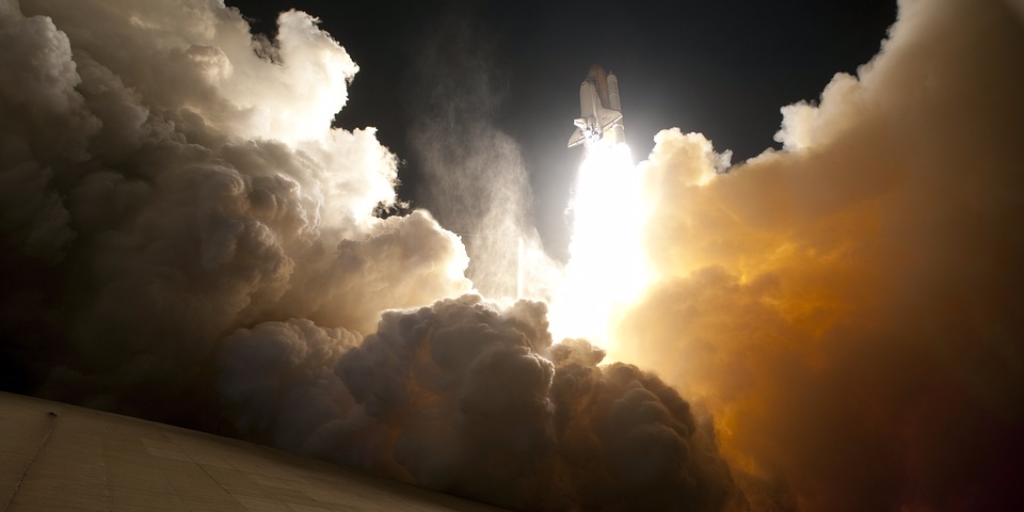 Reading this book permanently changed the way I think about my role as the leader of an organization. The argument in Rocket Fuel is simple: at the top of any organization, there needs to be a partnership between the visionary--usually but not always the point leader--and an integrator, who implements the vision.The book gives some helpful tips for finding out which role you are better suited for, and how to find your counterpart. Very simple ideas, but powerful in practice.★★★ Rocket Fuel
Reading this book permanently changed the way I think about my role as the leader of an organization. The argument in Rocket Fuel is simple: at the top of any organization, there needs to be a partnership between the visionary--usually but not always the point leader--and an integrator, who implements the vision.The book gives some helpful tips for finding out which role you are better suited for, and how to find your counterpart. Very simple ideas, but powerful in practice.★★★ Rocket Fuel
Voyage to Alpha Centauri, by Michael D. O'Brien
 Michael D. O'Brien has become one of my favorite novelists, and this long novel about a long journey to our nearest solar system set in the near future has been rattling around in my mind since I finished it over 2 years ago. O'Brien is not a science-fiction novelist, and this isn't really a science-fiction novel so much as a religious novel: in a secular future, a lonely, irascible scientist is invited to be a passenger aboard the first manned spaceship to leave our galaxy. I found the description of the ship and the technological advances it contains as well as the bureaucratic rigidity and cruelty that the main character faces to be both believable and terrifying. This isn't a perfect novel, and though I'm inclined to agree with this reviewer's criticism here, I actually think it stands up over time. Of all the books I read in 2016, this is the one that has most haunted my thoughts 2 years later.★★★★1/2 Voyage to Alpha Centauri
Michael D. O'Brien has become one of my favorite novelists, and this long novel about a long journey to our nearest solar system set in the near future has been rattling around in my mind since I finished it over 2 years ago. O'Brien is not a science-fiction novelist, and this isn't really a science-fiction novel so much as a religious novel: in a secular future, a lonely, irascible scientist is invited to be a passenger aboard the first manned spaceship to leave our galaxy. I found the description of the ship and the technological advances it contains as well as the bureaucratic rigidity and cruelty that the main character faces to be both believable and terrifying. This isn't a perfect novel, and though I'm inclined to agree with this reviewer's criticism here, I actually think it stands up over time. Of all the books I read in 2016, this is the one that has most haunted my thoughts 2 years later.★★★★1/2 Voyage to Alpha Centauri
Advise and Consent: A Novel of Washington Politics, by Allen Drury
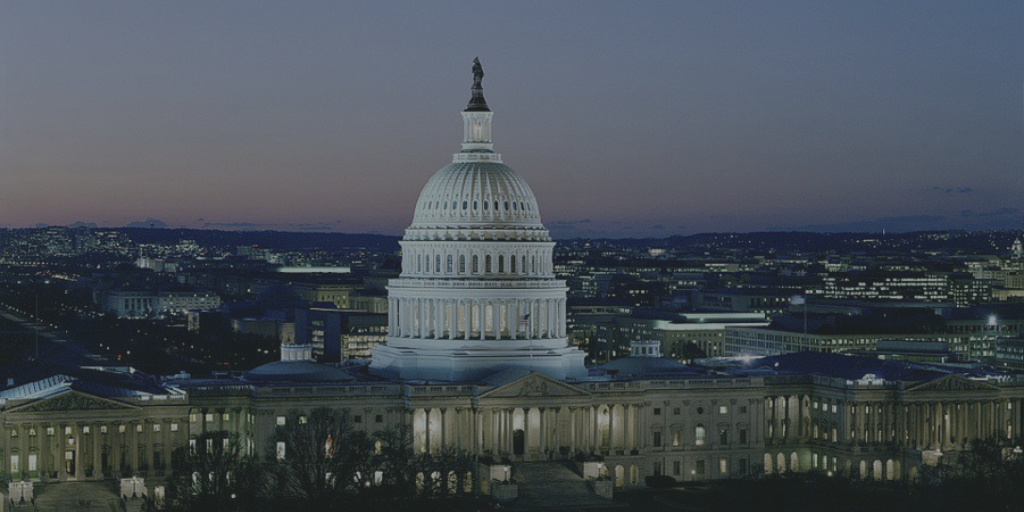 I read this 1959 novel over Thanksgiving break 2 years ago, but I found myself thinking about it constantly during the confirmation hearings for Justice Brett Kavanaugh earlier this fall. Advise and Consent is a long novel about a national political controversy, not unlike the Kavanaugh controversy in that it brings political passions to boil over. It's about what men will do to gain power, and about how ideology causes people to congratulate themselves on their deceit. The central act of the novel is a betrayal that is among the nastiest, cruelest things I've ever read, which has caused me to think about the Presidents in my lifetime--would these men resort to that kind of action? I fear the answer is yes. This is a book for anyone who loves politics (and you'd better love politics, since the book is over 700 pages long); along with Richard Ben Cramer's nonfiction magnum opus What It Takes: The Way to the White House, which I wrote about here, Advise and Consent is one of the best political books I've ever read.★★★1/2 Advise and Consent
I read this 1959 novel over Thanksgiving break 2 years ago, but I found myself thinking about it constantly during the confirmation hearings for Justice Brett Kavanaugh earlier this fall. Advise and Consent is a long novel about a national political controversy, not unlike the Kavanaugh controversy in that it brings political passions to boil over. It's about what men will do to gain power, and about how ideology causes people to congratulate themselves on their deceit. The central act of the novel is a betrayal that is among the nastiest, cruelest things I've ever read, which has caused me to think about the Presidents in my lifetime--would these men resort to that kind of action? I fear the answer is yes. This is a book for anyone who loves politics (and you'd better love politics, since the book is over 700 pages long); along with Richard Ben Cramer's nonfiction magnum opus What It Takes: The Way to the White House, which I wrote about here, Advise and Consent is one of the best political books I've ever read.★★★1/2 Advise and Consent
The Rest of My 2014 Reading List (Some Great, Some Worthless--in Chronological Order)
Silence: A Novel, by Shusaku Endo
An historical novel about Jesuit missionaries to Japan during a time of great persecution in the 17th century, Silence asks the question, Is it right to deny Christ in order to alleviate suffering? I think the novel gives one answer, whereas Martin Scorsese's excellent film adaptation gives a contrary one. I'd recommend both the book and the movie.★★★ Silence
The New Rules for Love, Sex, and Dating, by Andy Stanley
The sermon series on which this book was based was excellent, the book less so.★★ The New Rules for Love, Sex, and Dating
Tortured for Christ, by Richard Wurmbrand
A famous memoir about the evils of Communism and the horrors of Ceaucescu's rule in Romania.★★ Tortured for Christ
Moonfleet, by J. Meade Faulkner
This is an adventure story along the lines of Treasure Island or Kidnapped--though not as good as either--written at the end of the 19thcentury about the south coast of England during the 1750s. A recommendation from Peter Hitchens (see above), it had me reaching for the dictionary, but I loved the antiquated speech of the characters.★★1/2 Moonfleet
Arts and Entertainments: A Novel, by Christopher Beha
This novel made me queasy the whole time I was reading it, and I had to make a commitment finish it. It's about a guy who sells a sex-tape that contains a scene with a now-famous ex-girlfriend. What made me queasy was not the sex-tape (no details are given), but the nauseating sense of celebrity culture and reality television that pervades the novel, and, of course, everyday life. This novel is a satire, and Mr. Beha clearly does not think that reality television is a good thing; nonetheless, I still disliked reading about it.★ Arts and Entertainments
Discovering the Shepherd: a Study of Psalm 23, by G.E. Johnson
The Big Short: Inside the Doomsday Machine, by Michael Lewis
Infuriating, because the people who did the wrong thing got away with it. Interesting portraits of the sort of people who saw what no one else actually wanted to see, even though the evidence was there the entire time.★★ The Big Short
Fight for the Forgotten: How a Mixed Martial Artist Stopped Fighting for Himself and Started Fighting for Others, by Justin Wren & Loretta Hunt
Justin is a friend of mine; the story of his conversion to Christianity and his subsequent adoption by a Pygmy tribe in the Congo Rainforest is one of the more amazing stories I've heard. I'd rate this book higher, but hearing "the Big Pygmy" speak in person has spoiled it for me.★★ Fight for the Forgotten
Reflections on the Psalms, by C.S. Lewis
Great chapters on the violent psalms and on the use of scripture. Really insightful book. Recommended.★★★ Reflections on the Psalms
Dictator: A Novel, by Robert Harris
3rd and final novel in a trilogy about the ancient Roman statesman Cicero. Very creative. Gave me a lot of perspective on ancient Rome, and the fall of the Roman Republic. I liked this, but not as much as An Officer and a Spy by the same author (see above). Certainly worth reading, though.★★★1/2 Dictator
Fifth Business, by Robertson Davies
A very strange novel about the life of a Canadian bachelor. Don't really know if I liked it or not.★★ Fifth Business
Spirituality of Gratitude: The Unexpected Blessings of Thankfulness, by Joshua Choonmin Kang
Simple, holy reflections on gratitude.★★ Spirituality of Gratitude
Unleashing Opportunity: Why Escaping Poverty Requires a Shared Vision of Justice, by Michael Gerson, Stephanie Summers, and Katie Thompson
This is the kind of book in which the authors say things like "Government and church should work together to help children." Okay.... But what does that mean? The only part of the book I found interesting was the chapter on payday lending. Banks usually lend money to people that can pay it back; in payday lending, the whole point is to lend money so that people will never pay it back.★ Unleashing Opportunity
The Power of TED* (The Empowerment Dynamic), by David Emerald
The drama triangle stuff is worth the price of the book, though the little fable is a bit much for me.★★ The Power of TED*
Manage Your Day-to-Day: Build Your Routine, Find Your Focus, and Sharpen Your Creative Mind (99U)
Simple little book. Worth reading for those who are in the creative professions and struggle with distraction. I really liked the ideas of routine. Reminded me of what I already knew (which is not a bad thing).★★ Manage Your Day-to-Day
Team of Teams: New Rules of Engagement for a Complex World, by General Stanley McChrystal, Tantum Collins, David Silverman, and Chris Fussell
I previously reviewed this book. From that review:
Team of Teams is an interesting, thorough book (I've only referenced a very small part of its content here), but I'm not totally convinced by its argument. General McChrystal and his co-authors argue that in our complex world, a great team or team of teams is a greater strategic advantage than a great leader. I agree with that, as far as it goes, and I think the insights in the book about how to create an organizational culture that is adaptable and resilient are helpful. But, I can't help thinking that part of the story of the book is also that it takes a great leader to create that kind of organizational culture. Maybe the kind of leader who could lead that kind of change would end up thriving in any situation, complex or not. The Admiral Nelsons of the world might just make any team successful. A team is important, but a team requires a leader. As Bill Hybels likes to say, 'Everything rises and falls on leadership.' As I said, the more I read General McChrystal‘s book, the more I thought, 'This guy is impressive.'
If You Can Keep It: The Forgotten Promise of American Liberty, by Eric Metaxas
When asked by a passerby in 1787 what the Framers of the Constitution had been creating on behalf of the American people, Ben Franklin replied "A republic, if you can keep it." I strongly dislike both the Bonhoeffer and Luther biographies by Metaxas--I can't stand his writing style--but I really liked this little book about America. Highly recommended.★★★ If You Can Keep It
The Chimera Sequence, by Elliott Garber
Look up "Beach Read" in the dictionary, and this novel about mountain gorillas and terrorists and heroic scientists would be pictured.★ The Chimera Sequence
Laurus, by Eugene Vodolazkin, trans. by Lisa C. Hayden
After reading Rod Dreher's rhapsodic review of this modern Russian novel, I wanted to like it...but I just didn't. I thought it was okay and interesting, but nothing close to as good as he seems to think.★ Laurus
Streamline: How to Create Healthy Church Systems, by Michael Lukaszewski
★★ Streamline
Leadership Axioms, by Bill Hybels
One of the many sad parts of the Bill Hybels situation this year is that Bill was someone with good stuff to say...if only he would have applied it to himself. This is a good book, regardless of its author's hypocrisy and failings.★★★ Leadership Axioms
With: A Practical Guide to Informal Mentoring and Intentional Disciple-Making, by George G. Robinson and Alvin L. Reid
I remember literally nothing about this book.★ With
The Checklist Manifesto: How to Get Things Right, by Atul Gawande
Really interesting case studies (aviation, surgery, etc.) of the usefulness of checklists.★★ The Checklist Manifesto
Werewolf Cop: A Novel, by Andrew Klavan
Yes, I actually read this. And no, I have no idea why.★ Werewolf Cop
Red Moon Rising: Rediscover the Power of Prayer, by Pete Grief and Dave Roberts
I heard Pete Grieg give a talk at a conference, and so I bought this book. Wasn't particularly helpful to me, though I was struck by the 24-7 Prayer emphasis.★ Red Moon Rising
The Simple Technique Anyone Can Use To Become a Better Communicator (Immediately)
I've written a very short whitepaper on a subject I care a lot about: communication.Click HERE to subscribe to my newsletter and I'll send it to you for free:The Simple Technique Anyone Can Immediately Use To Become a Better Communicator.(If you are already a subscriber, drop me a line and I'll send you the whitepaper.)


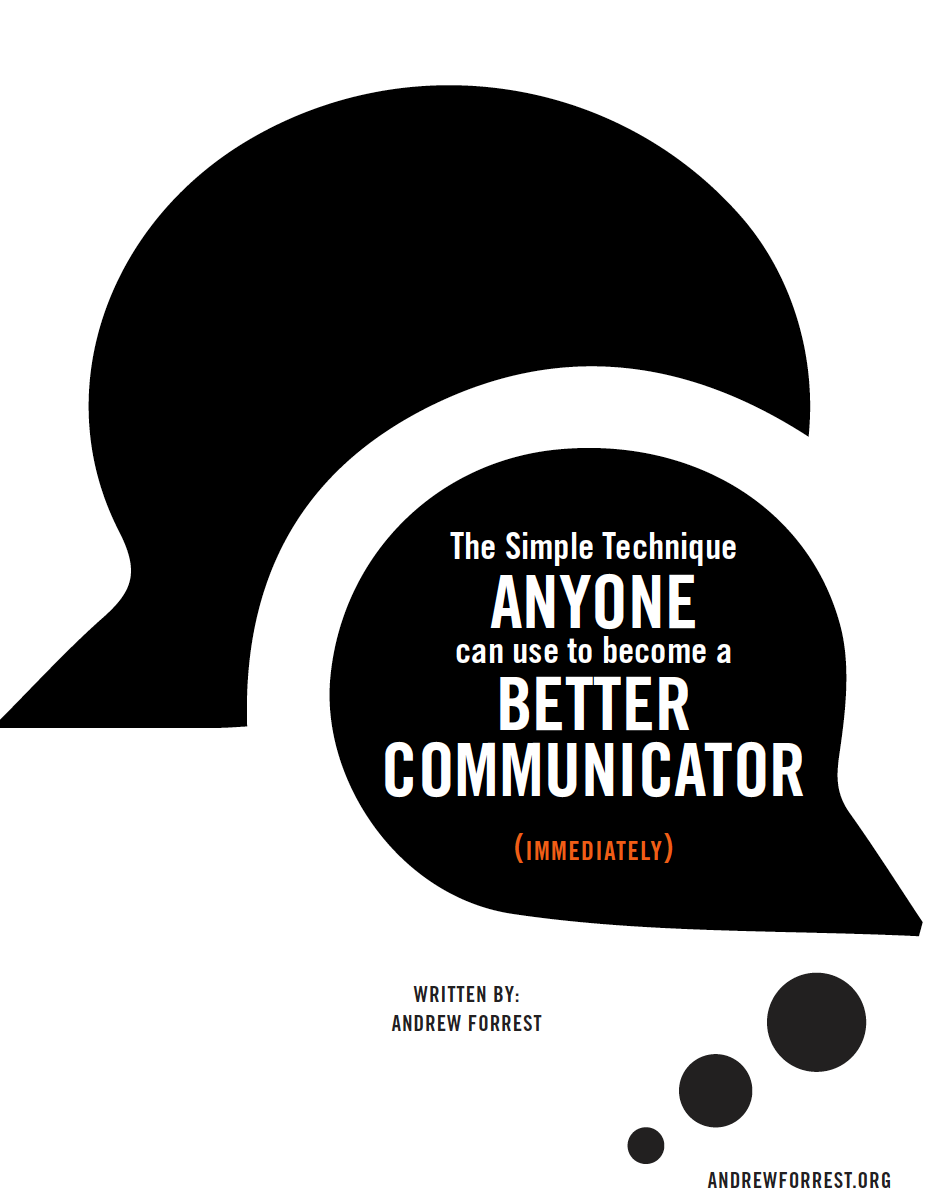









![[Léon Cogniet - The Artist in His Room at the Villa Medici, Rome]](https://images.squarespace-cdn.com/content/v1/5d70f59aefca59000162e4e6/1572533387527-8I1K1K6FG9WKM87BOXOV/lossy-page1-842px-L%C3%A9on_Cogniet_-_The_Artist_in_His_Room_at_the_Villa_Medici%2C_Rome_-_1978.51_-_Cleveland_Museum_of_Art.tiff.jpg)

